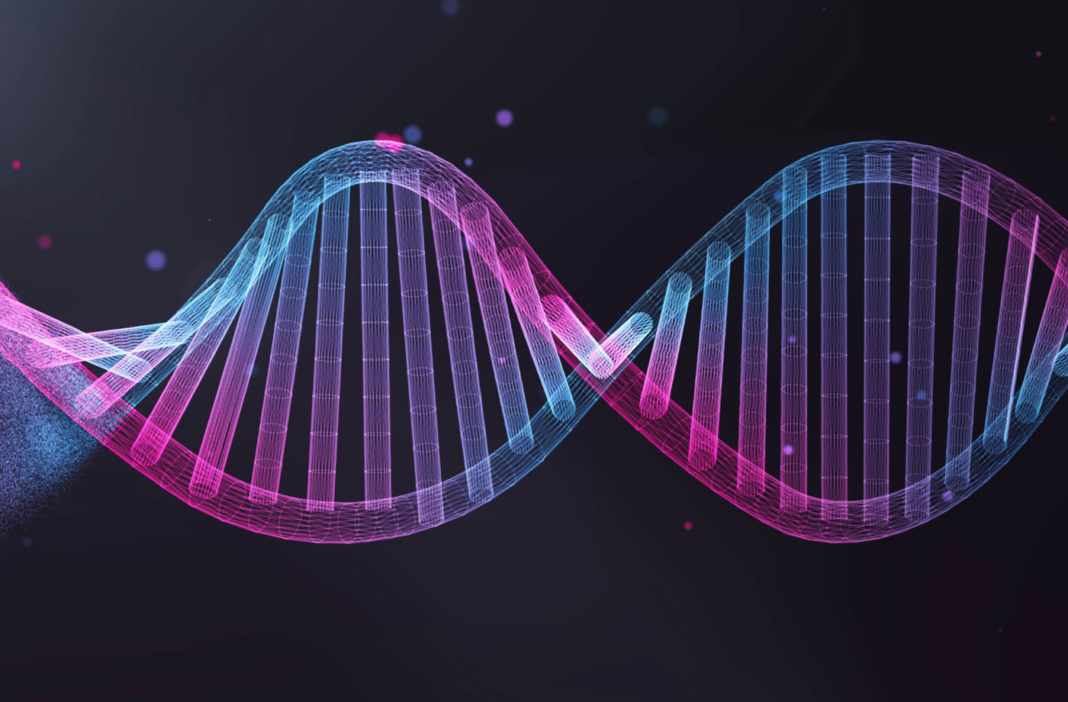Mammoth Biosciences will apply its DETECTR™ platform, and IDbyDNA, its proprietary pathogen database and algorithms, toward the development of CRISPR-based diagnostics and biosurveillance technologies against varied disease threats for the U.S. Department of Defense (DoD).
Mammoth and IDbyDNA are among subcontractors under a four-year, up-to-$36.7 million CRISPR diagnostics contract inked by DoD’s Defense Advanced Research Projects Agency (DARPA) with prime contractor MRIGlobal.
The contract enables DARPA to carry out its “Detect It with Gene Editing Technologies” (DIGET) program. DIGET calls for developing a “massively multiplexed detection” device for 1,000 or more targets—as well as a hand-held, disposable point-of-need device for detection of at least 10 targets—both pathogens and host biomarkers.
DARPA identified five disease categories for which the devices should detect pathogens and biomarkers: respiratory illnesses, febrile illnesses, vector-borne illnesses, gastrointestinal illnesses, and sepsis.
Mammoth—the Brisbane, CA-based CRISPR-based diagnostics developer whose co-founders include Nobel laureate and genome editing pioneer Jennifer Doudna, PhD—serves as the primary subcontractor to MRIGlobal for the point-of-need device, and will contribute to development of the MMD platform along with additional partners.

“One of the cool things about this project is that one of the goals is really to bring things up to 10-plex, even, which is really exciting. That’s the next level of plexing,” Mammoth Biosciences CEO and co-founder Trevor Martin, PhD, told GEN.
Mammoth is partnering with GlaxoSmithKline’s GSK Consumer Healthcare to develop a handheld point-of-need designed to apply the DETECTR platform wherever patients are, versus traditional point-of-care diagnostics used in healthcare facilities, which require centralized processing of samples.
Martin said the companies are still working to develop that handheld test, but would not offer an update on the collaboration, announced in May 2020.
DARPA states on its website that both devices “must be simple to operate, low-cost, and rapidly reconfigurable to provide high-impact, high-quality, and trusted information that enhances decision-making.”
“If successful, the disposable point-of-need device will improve the speed and efficacy of triage and treatment and enhance the standard of care for the military and public health domains in austere environments,” DARPA added.
Early threat detection
The MMD device will apply a platform designed to provide actionable data for biosurveillance efforts, which DARPA said included “characterization of known and emergent pathogens in circulation to inform countermeasure deployment. The device is intended to enable early threat detection, assess disease severity, and improve situational awareness.”
The DIGET contract was not sparked by COVID-19, as it was first published in November 2019 with an initial due date for proposals of February 25, 2020, just as the pandemic began to wreak havoc on the world.
“It’s definitely not necessarily tailored to only COVID-19, but definitely it’s building out a bit of the holy grail of molecular diagnostics, in the sense that you can have some point-of-need tests that can be rapidly programmed for a COVID-21 or -22, or hopefully none of these. And you can very rapidly have very accurate diagnostics at scale, in a decentralized manner.”
Mammoth said its co-founder and CTO Janice Chen, PhD, will lead the team as a co-principal investigator alongside Richard Winegar, PhD, and Julie Lucas, PhD, both of MRIGlobal. “The COVID-19 pandemic has exposed the lack of rapid and affordable diagnostics and CRISPR is poised to address that unmet need,” Chen stated.
In July, Mammoth was awarded $23.1 million of $248.7 million in contracts to the first seven lab-based and point-of-care diagnostics developers funded through the NIH’s Rapid Acceleration of Diagnostics (RADx) initiative toward a scalable COVID-19 test.
As for the DARPA contract, which is separate from Mammoth’s work under RADx, Martin said Mammoth joined the contract after reading an email from MRIGlobal, a nonprofit contract research organization for government, industry, and academia that was founded in 1944.
“We have a great relationship with them, and they have decades and decades of experience working with the government. That’s one thing we definitely appreciate about the consortium, it’s that they leverage massive strengths from everyone.”
Database and algorithms
IDbyDNA said it will leverage its proprietary pathogen database and algorithms to advance DARPA’s goal of providing diagnostic and biosurveillance solutions that detect infectious disease threats, anytime and anywhere.
The DARPA contract, according to IDbyDNA, will expand the data feeds that its Explify® Platform can analyze, including signals from CRISPR-based assays, in addition to its current NGS applications, in order to support overall threat readiness and promote stabilization missions.
Explify is designed to identify more than 50,000 microorganisms, and more than 6,000 known common and rare pathogens. The platform uses a proprietary database of curated DNA and RNA reference sequences to identify 35,000+ viruses, 13,000+ bacteria, 4,000+ fungi, and 150+ parasites.
“Now more than ever, the world—and particularly, the Department of Defense—is in need of innovative solutions that can better identify pathogens and mitigate the spread of disease and other health threats,” Guochun Liao, PhD, founder, president, and CEO of IDbyDNA, said in a statement. “This program will integrate our innovative technology in an effort to leapfrog current approaches to pathogen detection and better support biosurveillance labs globally.”
Liao added that IDbyDNA will continue to seek out opportunities to partner with government entities “to leverage clinical metagenomics for the advancement of better diagnostic solutions.”
Joining Mammoth and IDbyDNA in partnering with MRIGlobal are Draper, University of California, San Francisco (UCSF), and Toolbox Medical Innovations.
UCSF Health Clinical Laboratories was granted an FDA Emergency Use Authorization in July for the SARS-CoV-2 RNA DETECTR Assay, which Mammoth co-developed through its partnership with UCSF professor Charles Chiu, MD, PhD, who is also director of the UCSF-Abbott Viral Diagnostics and Discovery Center, and a member of the company’s Scientific Advisory Board. The 45-minute test uses the CRISPR-Cas12 enzyme, which targets double-stranded DNA.
“I think overall it’s a very natural fit for everyone to really drive for this diagnostic technology,” Martin said. “It’s just such an exciting opportunity.”






